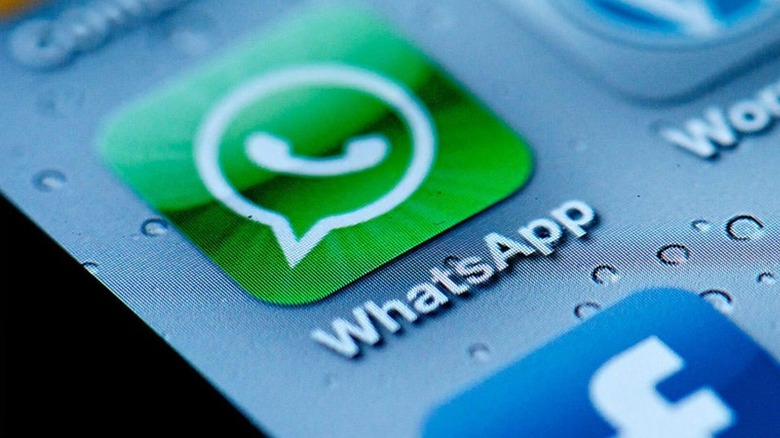What If One Of Gmail's Coolest Features Came To Chat Apps?
How many times have you sent a message to the wrong person and wished you could take it back? There's a neat feature inside Gmail that lets you undo such mistakes, but what if it was also available on a popular chat app? After all, we use chat apps on mobile devices a lot more than email these days, which means the risk of sending the wrong text is much greater.
WhatsApp might help with that, as the company is reportedly working on a feature that would let you retrieve sent messages.
According to WABetaInfo, WhatsApp beta version iOS 2.17.1.869 contains a new Revoke option which will let the sender revoke a message before it's delivered to the recipient. This could come in handy if you keep texting the wrong person. And it might even prevent some drunk texting, although if you're drunk and texting away it's likely that revoking messages might be the last thing you'd think about. Or manage to do in time.
From the looks of it, you're going to have to tap a message that you just sent to open up a menu and then select the new Revoke option from that menu. The message will then be deleted — check out the images in the tweet below.
SNEAK PEEK #1:
WhatsApp beta for iOS 2.17.1.869: it is possible to revoke messages! pic.twitter.com/Ncj22txxcG— WABetaInfo (@WABetaInfo) December 14, 2016
It's unclear how fast you'll have to act before it's too late, but it's likely that you'll have to be quick about it. Even in Gmail you only have a few seconds to unsend a message.
The same source claims that the sender can still revoke messages that are seen by the recipient, which would let you remove some of the things you said in a conversation, and even delete pictures that you may have sent to someone.
NOTE:
Revoking messages feature can delete messages that are already read by the recipient (actually)— WABetaInfo (@WABetaInfo) December 14, 2016
NOTE:
Revoking messages feature can also delete photos and videos in the phone of the recipient (*now*!! I don't know if this will change)— WABetaInfo (@WABetaInfo) December 14, 2016
It's not clear at this time when the new feature will roll out to all users, but it's likely that iPhone users will get it first when it does.
